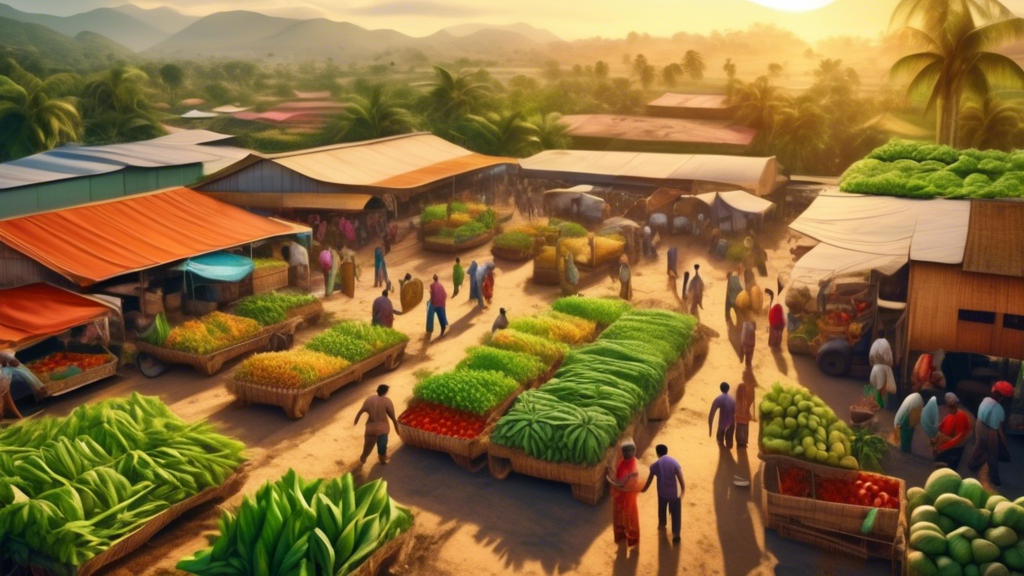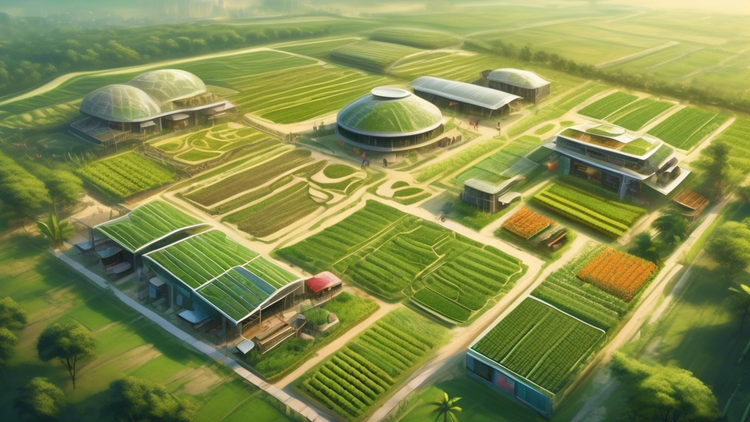Tropical organic farming: supporting local economies.

The Impact of Tropical Organic Farming on Local Economies
Tropical organic farming is not just a method of cultivating crops without the use of synthetic pesticides and fertilizers; it is a holistic approach towards sustainable agriculture that is intricately woven into the fabric of local economies. By diving deeper into this agricultural practice, one can see its tremendous potential in fostering environmental sustainability and bolstering local industries.
The Economic Benefits of Organic Farming
When assessing the impact of organic farming on local economies, especially in tropical regions, several key benefits stand out:
- Job Creation: Organic farms are typically more labor-intensive than conventional farms. This requirement for additional manpower translates into more job opportunities within rural communities, significantly reducing unemployment in these areas.
- Higher Premiums: Organic products often command higher prices in the market. This price premium can significantly boost the incomes of local farmers, providing them with the financial means to improve their quality of life.
- Increased Exports: The global demand for organic products is on the rise. Tropical developing countries, in particular, stand to benefit as many have begun to tap into this lucrative market, thereby increasing their export revenues.
- Development of Local Industries: Organic farming in tropical regions often necessitates the local production of organic inputs. This fosters the growth of ancillary businesses, including those involved in the production of biopesticides and organic fertilizers, further stimulating local economies.
Supporting Sustainability and Resilience
At the heart of tropical organic farming is its ability to harmonize with the local ecosystem. By avoiding synthetic chemicals, organic farming helps in preserving the biodiversity of the area, which is often rich and unique in tropical environments. The practice of crop rotation and intercropping also enhances soil health, making farms more resilient to diseases and pests while mitigating the impacts of climate change on crop yields. Furthermore, water sources are safeguarded for future generations, a critical consideration in many tropical regions that face water scarcity issues.
Community Engagement and Empowerment
Organic farming in the tropics often involves a significant level of community engagement. Local farmers are usually trained in organic practices, helping them transition from traditional methods. This empowerment fosters a sense of community and self-sufficiency. Moreover, the establishment of cooperatives and associations around organic farming can help in strengthening the social fabric of these communities, driving collective economic upliftment.
Pathways to Enhance Impact
- Education and Training: Providing continuous education and training to farmers on organic farming techniques and market strategies.
- Government Policies: Implementing supportive policies that encourage the adoption of organic farming, including subsidies and tax incentives for organic produce.
- Marketing and Branding: Developing strong marketing strategies to promote the benefits of organic produce both locally and internationally.
- Infrastructure Enhancement: Improving rural infrastructure to facilitate the transport and storage of farm produce, thereby reducing post-harvest losses and ensuring products reach markets in optimal condition.
Conclusion: Here's a Thought to Consider
As the global community becomes increasingly aware of environmental issues and health-conscious, tropical organic farming presents a promising avenue to promote environmental sustainability and economic growth within tropical regions. By supporting local organic farming practices, not only are we investing in healthier produce but also in the economic resiliency and ecological health of some of the world's most vulnerable regions. The impact is profound: thriving local economies, improved livelihoods, and a significant contribution to the global battle against climate change.
Looking for updates? Sign up to our newsletter for weekly snippets.
#PurelyPlanted #WholesomeHarvest #PlanetPlatter





